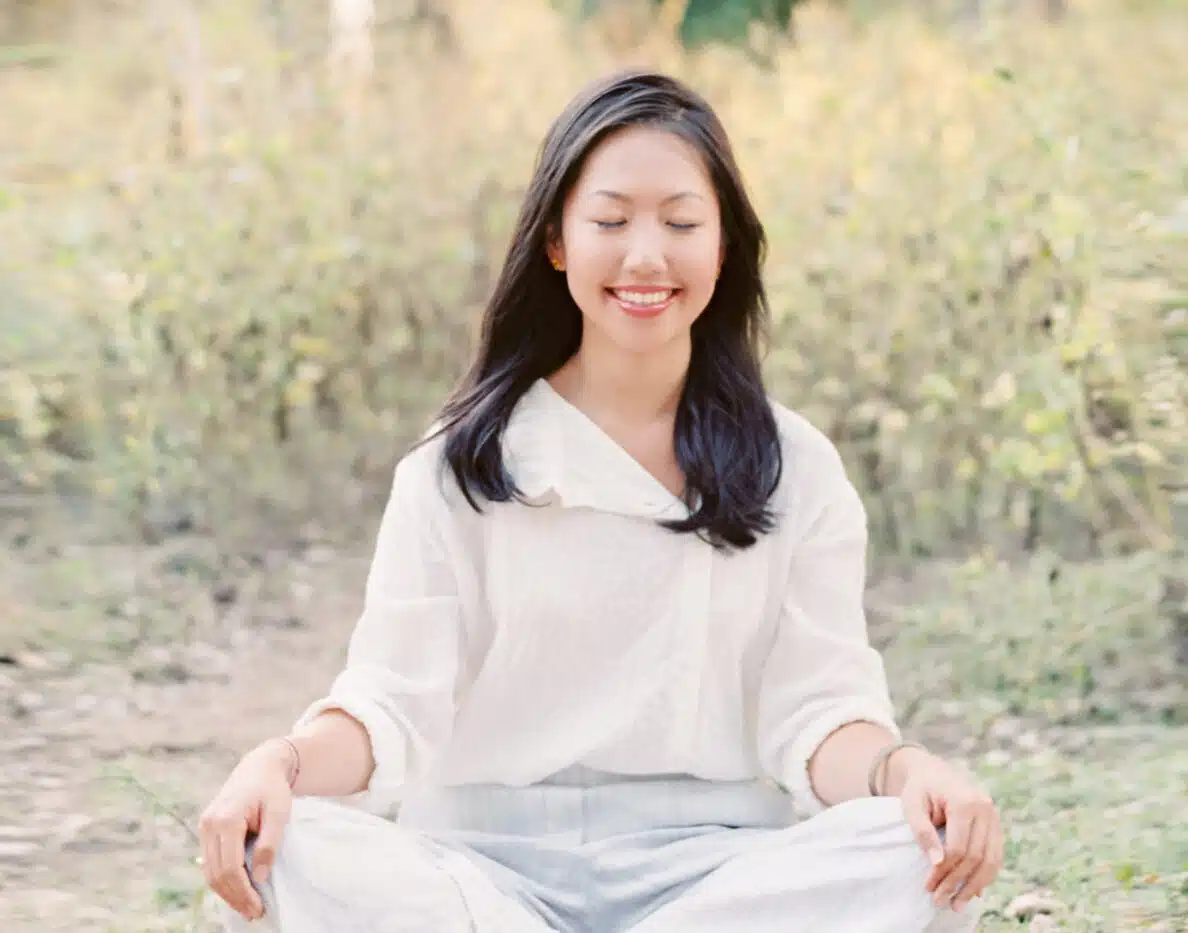How to Improve Work-Life Balance Through Meditation
With 77% of people in the United States experiencing burnout at some point in their careers, the question of balancing work with other areas of life is relevant to everyone. Especially in the United States, where the culture values progress, productivity, and accomplishment, we can unconsciously feel pressure to focus too much on work to the detriment of our happiness and health. We feel like we ‘should’ be more productive, avoid disappointing others, do more, or fit as much into our days as we can.
Meditation has increased in popularity as a method to help workers recognize their stress levels and needs more effectively. Vedic Meditation in particular provides deep rest to the body without further stressing the mind with forced concentration. It is an effortless practice that relies on a personalized mantra, and it can fit into any busy schedule to create a better work life balance in their lives.
In this post, we’ll talk about work life balance and how Vedic Meditation approaches balance through the perspective of evolution.
What is work-life balance?
According to the Cambridge dictionary, work-life balance is “the amount of time you spend doing your job compared with the amount of time you spend with your family and doing things you enjoy.” Let’s first address the cultural norms of how we spend our time, then we’ll look at how to consistently maintain balance regardless of your schedule.

8-hour days: A recent development
Our cultural norm for work hours during the week is 9 am to 5pm or 8 hours of work. This norm of the 8-hour day is not a universal phenomenon, and it has not been around forever.
Eight hours of straight work originated in the Industrial Revolution, when factories demanded 16-hour work days to keep their facilities running 24/7. The Ford Motor Company instituted 8-hour days that became the working norm for corporate America in 1914.
Around the same time, coffee was popularly introduced in the West, and ‘coffee breaks’ were permitted in a factory worker’s schedule. Suddenly, workers who had previously been productive for 6 hours could work eight hours with the assistance of caffeine. Now, coffee is a multi-billion-dollar industry fueling the 8-hour+ productivity of the workforce.
The point to note about the 8-hour workday is that it was made up in the early 1900s to serve factory production, not to align with human physiology or psychology. It was instituted to evolve commerce, not to evolve human consciousness.
True balance in life has nothing to do with the hours you spend on various activities. A more accurate measurement would be your allocation of attention and energy. In the Vedic Worldview, separating work and life becomes trivial and unnecessary as a mental exercise – when you put yourself to the most relevant work to fulfill your potential, your work may not feel like work at all.
The best place to start is to look at our stress, our energy, and the relevance of the ways we spend our time.

Start your Meditation Journey Today
ATTEND A FREE INTRO TALKHow do we know if we’ve achieved a healthy work life balance?
There are a few key indicators that we are not spending our time and energy in a way that serves our health or happiness as an individual. Regular stress, anxiety, relational strain, fatigue, or unhealthy coping habits can indicate that we’re overtaxing our minds and bodies.
In the Vedic Worldview, we assess our commitments according to their relevance to evolution. If our goal is to be healthy, have healthy relationships, and live a purposeful life, then we can look at our activities throughout the day and assess which are relevant to that goal and which are not.
When we are meditating with our mantra twice every day for twenty minutes, we begin to easily sense what is relevant to our evolution and what is not. Coping habits will drop away, and we’ll start to create healthy boundaries. Irrelevant demands will change or discontinue for more relevant activities and means of earning income. We’ll naturally work on improving work-life balance because we’ll more easily sense what activities drain our energy or add unnecessary stress to our lives.
How does meditation improve work-life balance?
Vedic Meditation is among the best ways to improve work life balance because of its comprehensive approach: when we meditate, we are both resting the body deeply to release stress and expanding our adaptation energy to respond to stress more effectively. Most importantly, we regularly encounter the place beyond thought in our meditation (even if it doesn’t feel like it at times), which is the field of pure Being. Encountering the field of Being imprints our consciousness with Universal consciousness and begins to guide our evolution.
Resting the body, releasing stress, and expanding our consciousness all build our resilience and open our eyes to the areas in our lives that are out of balance or out of alignment with our evolutionary path.
If working 6 long hours a day in an extremely stressful or toxic environment is blocking our evolution and happiness, then we may need to limit our work time to fewer hours or migrate to a new role and environment entirely. If working 12 hours a day fuels our creativity and purpose and gives us the energy to spend on other relevant activities, then we may find that our long work days are perfectly relevant to our evolution for the time being.
In this way, Vedic Meditation goes far beyond a typical work life balance meditation to give you the awareness of what ‘balance’ looks like for you in any given season, day, or hour.

Evolution’s winding, unbalanced path
The idea of balance based on time spent on each activity is an intellectual assessment that may not accurately reflect the different stages of our evolution. Nature does not change and grow in a linear fashion, and, like a river winds in curves on the way to the ocean, our evolutionary paths are rarely linear.
We may find that we put all of our attention on rest and friends, and family in one season and choose to work far less, and in another season we dive into a project with excitement and work many hours a day. If we are consistent with our meditations, we will be able to sense our physical, emotional, and mental health requirements, and we’ll be able to schedule our days and participate in activities appropriately.
Learn to Meditate
Schedule an Intro Talk with me to learn more about Vedic Meditation and sign up for the Learn to Meditate Course. You’ll start a journey with a simple, effortless, lifelong practice that will help you effortlessly moderate the balance of activities in your life to consistently forward your happiness, health, and evolution.






